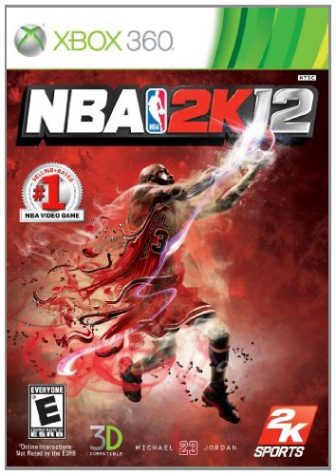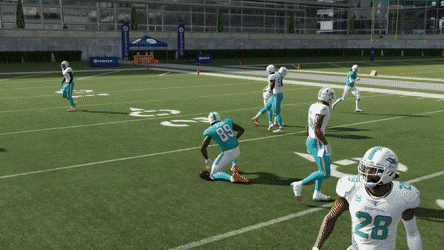Recent changes in sports simulation games incite criticism
Sports gaming fans examine the addition of microtransactions in ‘NBA 2K’
March 14, 2021
After first discovering his love for the bestselling simulation basketball video game “NBA 2K12” nine years ago, sophomore Alex Li began immersing himself in the game by playing, watching and engaging with its community. Fueled by his love for basketball, Li enjoys playing as his favorite athletes, such as Brooklyn Nets player Kevin Durant, from the franchise’s annually updated rosters.
“NBA 2K” is a long-running franchise of basketball simulation games developed by 2K Sports. With a full roster of players provided yearly by leagues such as the NBA, the 2K franchise has released over 24 games since 1999, with yearly additions, including graphical updates and roster changes, as well as a collection of free mobile games.
“One of the ways to connect with basketball without watching the games was playing [NBA 2K] itself,” Li said. “For me, when playing sports games, the main focus is the players themselves. Going to an actual NBA game costs a lot of money [and] time. But [with online sports games], you have simple access at home, [and] with a few bucks, you can simulate all of these [experiences] with your friends.”

Li’s childhood memories playing NBA 2K with his cousin are one of the reasons he has continued playing the game — his 9-year relationship with the franchise mainly consisted of playing the game in person with his cousin who lives in China. However, although his cousin introduced him to the game, Li did not have direct access to it and was forced to instead find other gateways to interact with the community.
“My life with 2K was mainly just following YouTubers and [watching] montages, intros and [learning] how to play the game,” Li said. “After that, I got an Xbox, and the first game I wanted was 2K [so that I could] relive that experience.”
The 2K franchise has held critical and commercial success over the years, but its recent additions of microtransactions, or in-game purchases, have received scrutiny among some gamers.
Such transactions in the game are mainly for buying card packs, boosters and game currency. These card packs hold player cards inside, which contain real athletes that someone can add to their team. These players have ratings from 0-100, which change yearly depending on how well the athlete performs in real leagues — a level 100 player has the best statistics and therefore provides the most effective gameplay experience.
The reputation of many renowned sports simulation games, such as the football hit game “Madden” as well as “NBA 2K” have been tarnished due to the excessive number of microtransactions being introduced into the world of simulated gambling, shown through slot machines and card packs. For MVHS alumni Manish Malempati, ‘20, the excessive prices and displays of microtransactions over the $70 price tag distracts from the gameplay experience.
“Five bucks is very cheap in terms of what the microtransactions actually are,” Malempati said. “And if you want to be guaranteed to get something [useful], you’d have to pay 50 bucks. I’d just buy another game.”
However, when players purchase the card packs, a higher price indicates an increased chance of drawing higher rated cards, as most packs yield athletes in the level 50-75 range. The price range between these microtransactions can range from a simple five dollar card pack to a $70 signature bundle, which contains many packs and guaranteed inclusion of a highly rated player.
Even among the more expensive packs and bundles, the higher rated athletes are difficult to obtain — according to US Gamer, a $50 “Clutch” bundle (which contains 11 Elite, 80+ rated players and 55 Silver, 60+ rated or better players) in EA‘s “Madden 20” (An NFL backed football game franchise) has only a 5.8% chance of drawing a player with a rating of 86 or greater. This lack of guaranteed goods has created a system of repetitive gambling for the goal of getting highly rated athletes and has drawn a great deal of criticism from many publications and personalities like the YouTuber “AngryJoeShow,” who has posted multiple videos explaining his dislike for the game’s lack of improvements as well as its simulated gambling. For many sports fans like sophomore Jeremiah Lo, the process of paying for such microtransactions provides an unfair advantage over those not paying.
“That’s where the charm of [free-to-play] games are, where you work hard to get stuff,” Lo said. “Instead of buying your way to the top, you actually work for it. I’ve seen a lot of Madden content of YouTubers spending thousands of dollars to find one athlete. If someone [had] a 90+ [rating] overall team [and] had to go up against someone who spent their half their life savings on the game with insane players, it’s just not fair that someone who spends money on the game gets an advantage over someone who works hard.”
Microtransactions have been scrutinized in the past as well — the first ever microtransaction in a video game was in 2006, when renowned developer Bethesda Studios added a purchasable cosmetic of horse armor in the hit game “Elder Scrolls: Oblivion,” which drew significant criticism from the gaming community as the $2.50 price tag was received by many as too expensive. Since then, the price for a microtransaction to be defined as expensive has significantly increased with time, and for someone that only buys only one “Madden” game per console generation, Malempati has now accepted microtransactions as a part of the experience.
“There’s always going to be a microtransaction for games like [Madden],” Malempati said. “It’s pay to win, but if you want to pay, then sure, you can win that way. So that option is there, and I see why it shouldn’t be there. The downside is [that], in terms of loot boxes, it’s more fair that people that don’t have funds or resources to keep paying for [packs] have a chance [of drawing good players] without putting in eight hours a day. “

Due to the NFL and NBA licensing their rosters and branding to companies such as EA (“Madden”) and Take Two (“NBA 2K”), the sports game market has been monopolized, as the roster is one of the most important parts of the games to sports fans like Li. When put in a hypothetical situation of choosing between sacrificing the roster or the microtransactions, both Malempati and Li were willing to take the hindrance of a microtransaction in order to play their favorite players.
“Since I watch basketball and know football on a fundamental level, playing with those rosters adds that personal feel — you’re watching the game but you’re also a part of it,” Malempati said. “You can play the other game with no microtransactions, but it’ll feel bootlegged because those other players are fake, and these players are real. A lot of people think the same way as I do. If they want to play as LeBron James, they’re gonna buy 2K. If they want to play as Tom Brady, they’re gonna buy Madden. There’s no other game[s] that can do that right now.”



























